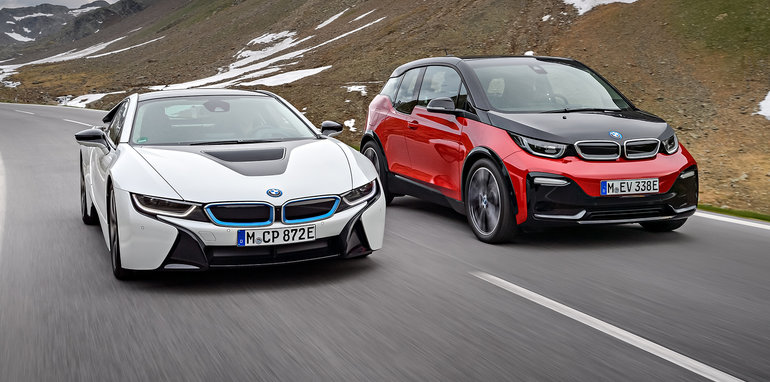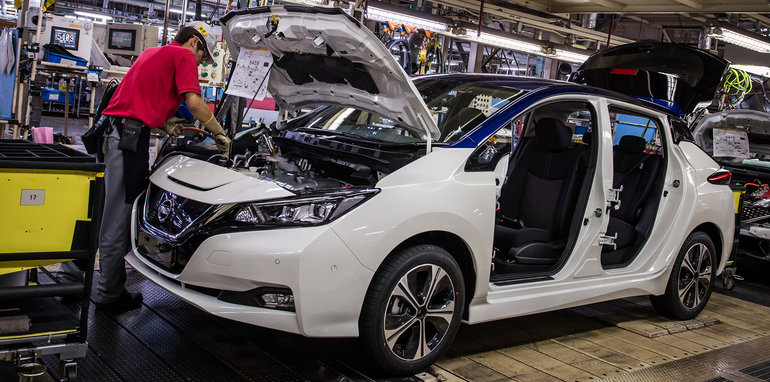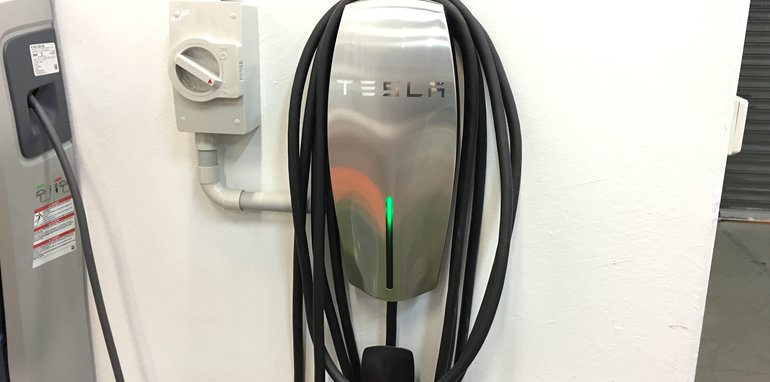A report from the NRMA and Electric Vehicle Council has called for greater Government support of battery-powered vehicles.
The Future is Electric lays out a six-point plan for accelerating the adoption of electric vehicles in Australia, arguing "the humble car is undergoing a major paradigm shift".
"Manufacturers and technology companies are rapidly moving the automotive industry towards an electric and automated future," the report says.
"With Australian commercial vehicle manufacturing now ceased, we are fully reliant on importing vehicles for personal and commercial use. With such a significant emphasis on electrification worldwide, particularly among major vehicle manufacturers and markets, it's important that we plan and prepare for an expanded electric vehicle fleet in Australia."
Just 93 of the 100,200 cars sold in Australia last month were pure electric vehicles, while 907 were hybrids. The numbers were similar in September last year, when 84 of 102,696 cars sold in September were electric.
Skewing the numbers is the fact that Tesla doesn't report to VFACTS, making it hard to get a complete reading on the market, but the Model S and X aren't flying out the doors in their thousands. (Some enthusiast sites do maintain lists, however, based on registration data and vehicles spotted in the street. And a recent recall of the Model X for faulty seats suggests there are 89 examples either in country or on their way.)
Norway, by comparison, shifted 337,462 electric cars last year. The report uses the small Scandinavian nation to demonstrate the effect of generous subsidies on the market.
The report has six suggestions for accelerating the transition to electric power in Australia.
The first two points are, according to Heath Walker, communications boss for Tesla Australia, particularly important.
"We're hoping policies will help with [pricing] over time – with the removal of Luxury Car Tax and fringe benefit taxes, or even state-based incentives such as the removal of stamp duty like what we've seen in the ACT – to really advance this technology," Walker told a ClimateWorks Australia EV webinar.
"I believe we're the only first world country to have a tax and no incentives on electric vehicles, and despite there being some subsidies on Luxury Car Tax, it truly does hamper the cross-shopping when it comes to a choice between internal combustion engine and an electric vehicle".
Tesla isn't alone in its frustration with the lack of incentives for electric vehicle buyers. BMW has been vocal in criticising the Federal Government's handling of the electric cars topic, calling for more financial support.
"Our government is so far behind in their view of climate change," BMW Australia CEO, Marc Werner, said at the launch of the 530e iPerformance. "Australia has shocking emissions levels. Worse than what we would call non-industrialised, or third-world countries."
"Here in Australia we have the customer, and we have the industrialisation. All that's missing is the legislation. That is critical for encouraging the uptake of LEVs (low-emissions vehicles)," Werner continued. "[We need] financial and non-financial incentives. Incentives that will put these low-emission vehicles within the reach of more Australians."
Adam Davis, BMW Product Communications Manager, reiterated this. "An open discussion is required between the government and OEMs regarding PHEV and EV expansion, awareness and sales."
Former Nissan CEO, Richard Emery, was also openly critical of the government's lack of initiative.
"It's still a slow burn (EVs). I still remain convinced that the government need to take more steps to encourage people to make that as a choice," he said, speaking to CarAdvice at the launch of the updated X-Trail earlier this year. "There's only so much the manufacturers can do."
"If the government is truly committed to CO2 reductions, then maybe they have a different look at how they approach electric cars and hybrids, in terms of taxation revenue and other matters that they can act on," he added.
In response to these strong statements from the industry, the Federal Government has done, well, nothing, leaving it to the states to encourage adoption with their own subsidies.
The ACT offers a break on Stamp Duty for EV buyers, but no other state provides meaningful incentives for early adopters to drop their internal combustion engines. Infrastructure development has largely been left in the hands of manufacturers and third parties, too.
Along with the burgeoning Tesla Supercharger network, the NRMA has announced it will build a network of charge stations in New South Wales – and access will be free for members. Some energy companies offer cheap power for people who charge their cars at home, but they're all disparate responses to a far bigger issue.
"Australia can benefit more than any other country from a transition to electric vehicles, but we're being left behind due to inaction from our federal government," said Electric Vehicle Council Chief Executive, Behyad Jafari, at the launch of the NRMA charge network rollout.
"It is the role of government to show that the transition to electric vehicles is not just legitimate, it is also supported," he went on.
"The Federal Government can show some leadership in this space by exempting electric vehicles from Fringe Benefits Tax, and setting a target for proportion of electric vehicles sold on the Australian market."
MORE: Electric vehicle news, reviews, comparisons and videosMORE: Tesla news, reviews, comparisons and videos MORE: BMW news, reviews, comparisons and videos
Source: Car makers call for EV support as NRMA report says 'The Future is Electric'






No comments:
Post a Comment